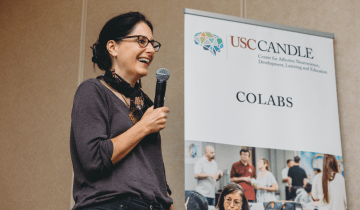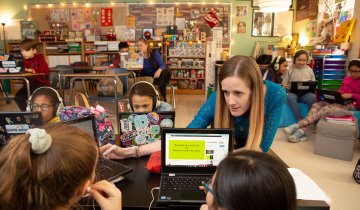Among the most shocking findings from the investigation into Russian meddling in the 2016 presidential election: Foreign operatives created dozens of bogus yet influential social media accounts aimed directly at Black people. They also targeted White conservatives in an effort to sow racial division. Worse, historians say it was not the first time Russians have successfully shaped their propaganda in racial terms. Brendesha Tynes, however, hopes it will be the last.
“Russia had and continues to deploy an army of people—a literal army—using strategies to target Black folks and conservatives,” she says. “The way that we’ve taught media literacy up to now has been inadequate, and that’s how the Russians were so effective in their efforts to interfere in our election.”

An associate professor of education and psychology at USC Rossier, Tynes is working on ways to better prepare American adolescents and emerging adults to process messages they see on social media and other online spaces. In particular, funded by a $1 million Lyle Spencer Research Award to Transform Education from the Spencer Foundation, she will conduct the first national study of adolescents’ critical media literacy needs and skills.
“We’re trying to get a sense of the shifting nature of the race-related messages, including misinformation, adolescents are exposed to on a range of platforms leading up to the 2020 election,” she says. “It’s an initial survey to understand where they’re getting the most race-related messages, where they have the most challenges (and at what age) in terms of being able to figure out what’s legitimate, and whether they are able to critique the messages.”
It is this ability to critique, analyze and process online content that most concerns Tynes. Much of this, she believes, can be addressed in the classroom, with teachers creating assignments geared toward helping students to critically read online material.
But she believes being able to do so will require extensive training for educators along with a level of cultural competence that is not typically cultivated in teacher training programs.
To address this gap, Tynes is developing an app that she says will be useful in helping students evaluate the race-related material they encounter online. The app, CRITmetric, will be a cutting-edge, forward looking technology that will also be shaped by a look backward at U.S. race relations.
“The historical component is central to being able to critique race-related messages online,” Tynes said. “And that’s where I think a lot of programs that are in schools now fall short. Kids learn false information about American history. So I think they need a program that helps them put the messages that they’re getting in historical and contemporary context.”





